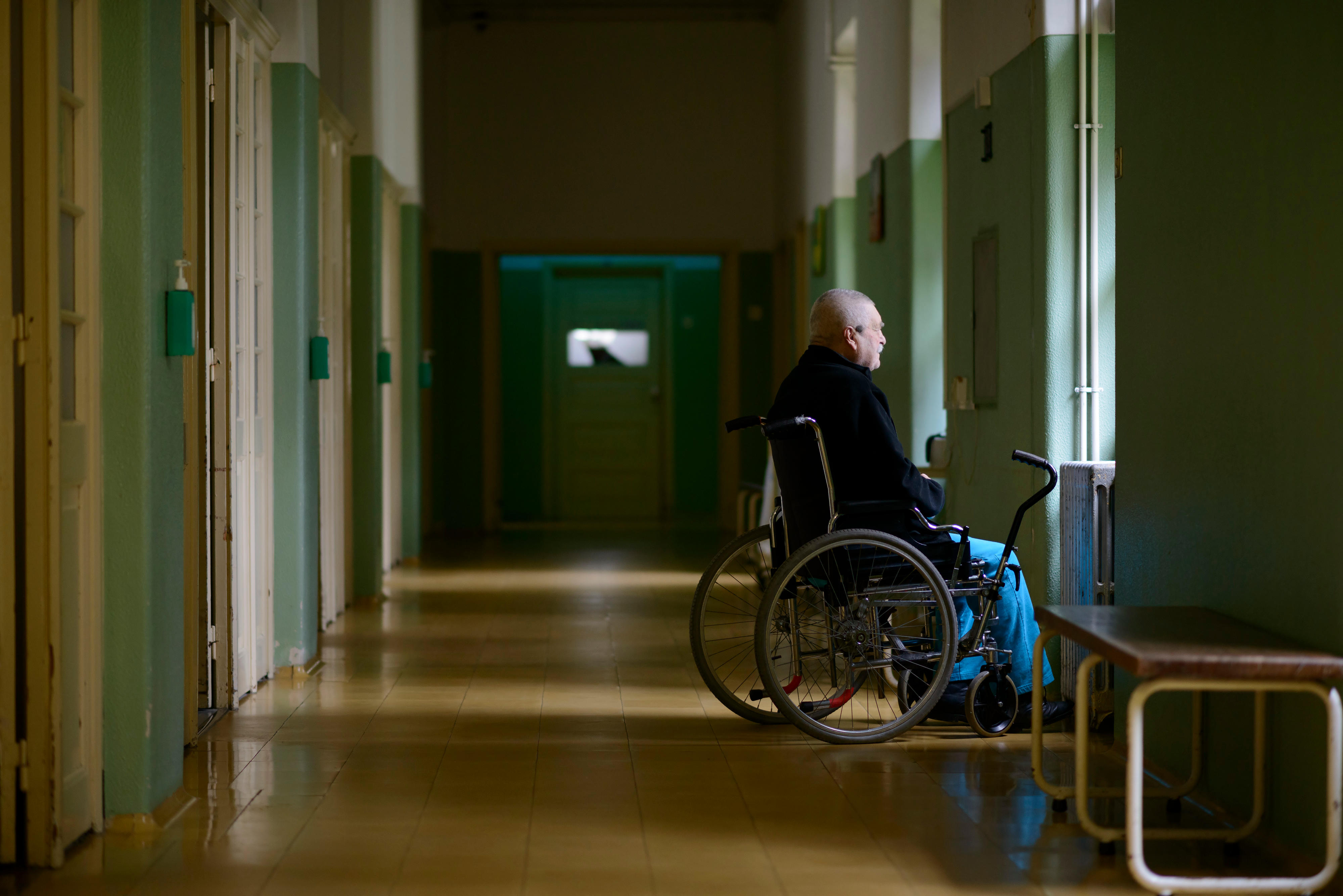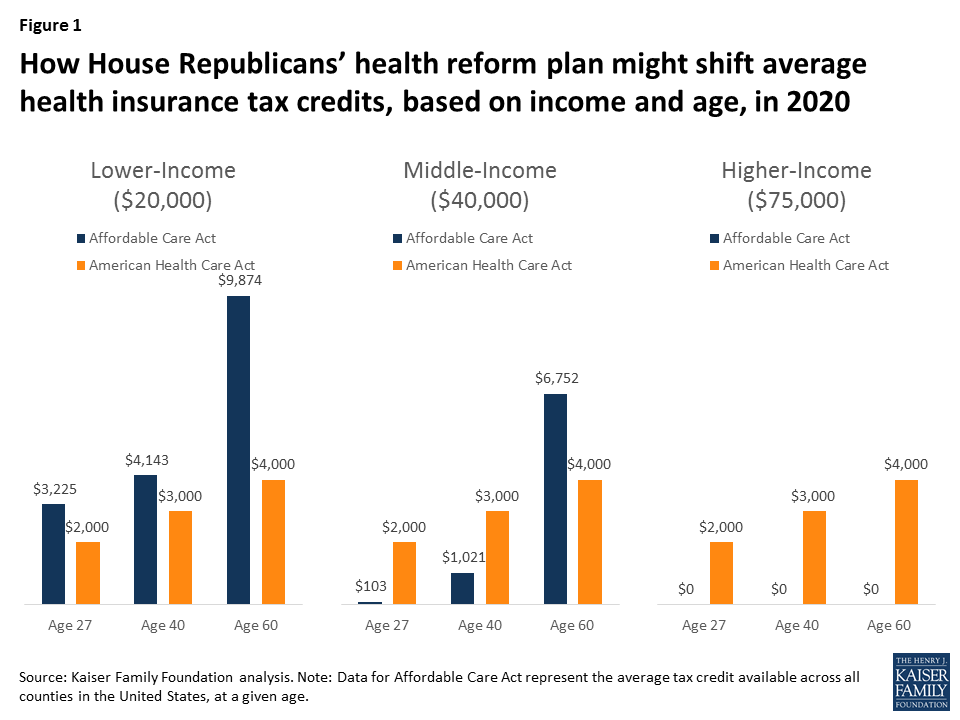The sickening human cost of the GOP's health-care bill
How the American Health Care Act cripples the old, sick, and poor to help the young and healthy


A free daily email with the biggest news stories of the day – and the best features from TheWeek.com
You are now subscribed
Your newsletter sign-up was successful
The topline number of the Congressional Budget Office's score of the GOP's American Health Care Act is just brutal: 23 million more Americans would lose health coverage by 2026 under the GOP plan, compared to if America just kept ObamaCare. But dig a little deeper, and you'll find some more positive-sounding numbers in the nonpartisan CBO's report.
For people who buy their insurance individually (as in, they don't receive it through an employer or government program like Medicaid), premiums in many parts of the country would fall after 2020, sometimes by as much as 30 percent.
This dovetails with the GOP's story: ObamaCare is a big government monster and by scrapping the regulations it imposes we can lower the costs of coverage. "This CBO report again confirms that the American Health Care Act achieves our mission: lowering premiums and lowering the deficit," declared House Speaker Paul Ryan.
The Week
Escape your echo chamber. Get the facts behind the news, plus analysis from multiple perspectives.

Sign up for The Week's Free Newsletters
From our morning news briefing to a weekly Good News Newsletter, get the best of The Week delivered directly to your inbox.
From our morning news briefing to a weekly Good News Newsletter, get the best of The Week delivered directly to your inbox.
Of course, there's a catch. There always is.
ObamaCare requires that insurers can only charge older people, whose care is quite expensive, premiums that are three times as high as young people, whose care is relatively cheap. The idea is to spread around the costs of care. Young people's premiums effectively help subsidize health care for older Americans. That's one of the bargains of ObamaCare.
The GOP's plan only limits insurers to charging older people five times what they charge younger people. But it also allows states to opt out of even that limit if they want. (Though charging older customers five times as much was pretty standard before ObamaCare.)
ObamaCare also requires all insurance plans to cover a package of 10 essential health benefits (EHBs) — things like prescription drugs, pregnancy and maternity care, hospitalization, rehabilitation, and so forth. And it requires insurers to charge the same premiums to healthy people and to sick people with pre-existing conditions. The GOP's AHCA allows individual states to opt out of enforcing these rules, too.
A free daily email with the biggest news stories of the day – and the best features from TheWeek.com
The CBO broke its analysis into three categories: It figured half the U.S. population would be in states that didn't take the waivers, one-third would be in states that only made minor changes with the waivers, and one-sixth would be in states that made big changes.
For the first group, the CBO projected premiums would fall 4 percent by 2026 compared to ObamaCare. With the weakened rule tying premiums for young people and old people together, insurers could charge young people less. "A younger and healthier population would be purchasing the insurance," so insurers' costs — and thus premiums — would fall overall. But premiums for older people would rise.
Now look at how much stingier the AHCA's subsidies for older people are than ObamaCare's, even as they'd be paying higher premiums:

As for the states that would make minor changes, the CBO figured average premiums could fall as much as 20 percent below current law by 2026, and by 30 percent in some spots.
But again, the tradeoff is obvious: The essential health benefits rule forces insurers to pay for more care than they were before. That drove up insurers' costs, so they raised their premiums to stay profitable. Cutting the EHBs reduces premiums, but it also means people in these states might no longer have their maternity care or prescription drugs or hospital stays covered. In which case, they often won't be able to afford care to begin with.
That leaves the one-sixth of Americans in the states that get rid of EHBs entirely and start charging people with pre-existing conditions more. You can guess what happens to them:
Average premiums would be lower than under current law because a younger and healthier population would be purchasing the insurance and because large changes to the EHB requirements would cause plans to cover a smaller percentage of expected health-care costs. In addition, premiums would vary significantly according to health status and the types of benefits provided, and less healthy people would face extremely high premiums … Over time, it would become more difficult for less healthy people (including people with pre-existing medical conditions) in those states to purchase insurance because their premiums would continue to increase rapidly. [Congressional Budget Office]
In short, sick people and those with pre-existing conditions would face such high premiums that they wouldn't buy coverage. That means they wouldn't pay premiums to begin with. So yeah, premiums on average would come down. But only because the people who need care the most would be unable to afford insurance. The most expensive plans would just never get purchased.
Now, Republicans set aside many billions of dollars to fund "high-risk pools." These are subsidy streams devoted to helping people with pre-existing conditions afford care. The GOP says the high-risk pools will protect these populations. But switching over to this alternative funding stream doesn't change the actual price of the care these people need to buy. Plenty of studies have concluded that the $138 billion the GOP has set aside for the next decade is grossly inadequate. The CBO itself concluded that "less healthy people would face extremely high premiums, despite the additional funding that would be available under [the AHCA] to help reduce premiums." (Emphasis mine.)
Yes, cutting regulations can lower costs. But this isn't magic. And it's not a free lunch, as the GOP has long implied. There are winners and losers. Regulations force businesses to devote more resources to a particular goal. Cutting regulations involves a trade-off. Prices will be lower for many people. But America will be much farther away from the Obama-era goal of providing affordable health care to all Americans.
Whether that goal is worth abandoning is really the entirety of the question.
Those 23 million more without coverage in 2026 aren't an accident. They aren't people who will be happy going without insurance. They're the poor, the sick, and the old, and we'd be throwing them under the bus to lower premiums for everyone else.
Jeff Spross was the economics and business correspondent at TheWeek.com. He was previously a reporter at ThinkProgress.
-
 Trump wants a weaker dollar but economists aren’t so sure
Trump wants a weaker dollar but economists aren’t so sureTalking Points A weaker dollar can make imports more expensive but also boost gold
-
 Political cartoons for February 3
Political cartoons for February 3Cartoons Tuesday’s political cartoons include empty seats, the worst of the worst of bunnies, and more
-
 Trump’s Kennedy Center closure plan draws ire
Trump’s Kennedy Center closure plan draws ireSpeed Read Trump said he will close the center for two years for ‘renovations’
-
 The billionaires’ wealth tax: a catastrophe for California?
The billionaires’ wealth tax: a catastrophe for California?Talking Point Peter Thiel and Larry Page preparing to change state residency
-
 Bari Weiss’ ‘60 Minutes’ scandal is about more than one report
Bari Weiss’ ‘60 Minutes’ scandal is about more than one reportIN THE SPOTLIGHT By blocking an approved segment on a controversial prison holding US deportees in El Salvador, the editor-in-chief of CBS News has become the main story
-
 Has Zohran Mamdani shown the Democrats how to win again?
Has Zohran Mamdani shown the Democrats how to win again?Today’s Big Question New York City mayoral election touted as victory for left-wing populists but moderate centrist wins elsewhere present more complex path for Democratic Party
-
 Millions turn out for anti-Trump ‘No Kings’ rallies
Millions turn out for anti-Trump ‘No Kings’ ralliesSpeed Read An estimated 7 million people participated, 2 million more than at the first ‘No Kings’ protest in June
-
 Ghislaine Maxwell: angling for a Trump pardon
Ghislaine Maxwell: angling for a Trump pardonTalking Point Convicted sex trafficker's testimony could shed new light on president's links to Jeffrey Epstein
-
 The last words and final moments of 40 presidents
The last words and final moments of 40 presidentsThe Explainer Some are eloquent quotes worthy of the holders of the highest office in the nation, and others... aren't
-
 The JFK files: the truth at last?
The JFK files: the truth at last?In The Spotlight More than 64,000 previously classified documents relating the 1963 assassination of John F. Kennedy have been released by the Trump administration
-
 'Seriously, not literally': how should the world take Donald Trump?
'Seriously, not literally': how should the world take Donald Trump?Today's big question White House rhetoric and reality look likely to become increasingly blurred
